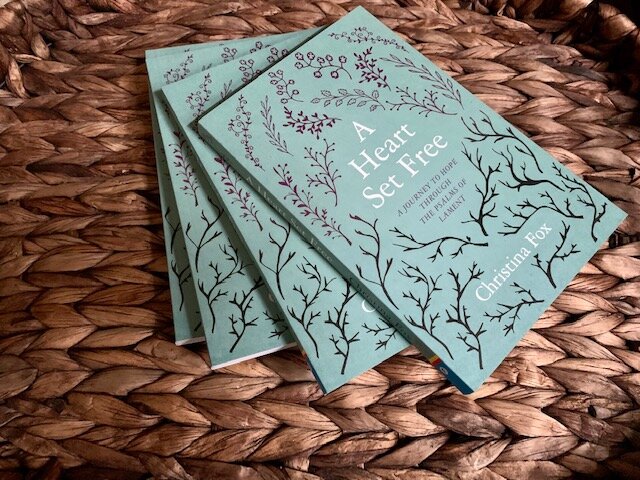I was in tenth grade when my grandmother had a heart attack. My grandparents lived far away from us and had just been in town for a visit when we received a call from my grandfather late one evening. I remember a flurry of decision making and tense voices, and then my mother came in my room to tell me she would leave in the morning to travel and visit my grandmother in the hospital.
I remember not quite knowing what to feel or think. I was a teenager and unfamiliar with all the medical jargon. But I loved my grandmother dearly and wanted to comfort her in some way. So I opened my Bible, culled through the Psalms, searching for words that might provide some solace. I scribbled a note to her for my mother to give her and added these words of Asaph:
“Whom have I in heaven but you? And there is nothing on earth that I desire besides you. My flesh and my heart may fail, but God is the strength of my heart and my portion forever” (Psalm 73:25-26).
A few days later, my grandmother passed away and every time I read Psalm 73, I think of her.
For years, whenever I reach Psalm 73 in my Bible reading plan, those two verses jump out at me and instantly I am transported back to my adolescence and to the grief and sorrow I felt at her loss. But recently, I re-read the Psalm and was struck by how those two verses stand in contrast to everything before it.
In Psalm 73, the psalmist comes to the throne of grace with a complaint. He pours out his disappointments, questions, and doubts before the Lord with great expectation. He assumes God hears him. He assumes God will respond. And what is his main complaint?
The prosperity of the wicked.
They seem to have no problems. They are rich and problem-free. They don’t experience the troubles and trials the rest of mankind contends with. They are prideful and thumb their nose at God. The psalmist describes it this way: “They set their mouths against the heavens, and their tongue struts throughout the earth.” They deny God. And all the while, they increase in wealth and prosperity.
Asaph brings these complaints before the Lord in the context of worship. And in doing so, he is convicted. He sees his heart. He sees how bitter he is as a result of comparing his life to that of the ungodly. “When my soul was embittered, when I was pricked in heart, I was brutish and ignorant; I was like a brute beast toward you.”
But God is gracious! The Psalm then transitions to the wonders of God’s grace. “Nevertheless, I am continually with you; you hold my right hand. You guide me with your counsel, and afterward you will receive me to glory.” After Asaph confesses his sin, the fog dissipates and he sees the truth: God is everything. The ungodly might have every material possession their hearts desire, but the godly have something far better, God himself. Knowing God and being known by him is worth far more than anything this world has to offer. In fact, everything that the ungodly accumulate in life dissipates like a dream once they stand before the throne of judgement (v.20). Their prosperity is shown to be empty and useless. What a contrast to all that we have in God! That’s what those verses I sent to my grandmother mean. God is our portion. He is our inheritance. And through Jesus, we have full access.
I have my grandmother’s Bible, the one she took with her to church each Lord’s Day. It’s filled with her sermon notes and underlined passages. She knew the Lord was her portion. And I’m thankful for the years I had with her as a child, to learn from her testimony, to learn of her love for God. My grandmother’s example and the words of Asaph point me to the truth: “it is good to be near God.” In his presence, doubts are transformed. The weak are made strong. The lost and frightened find refuge.
When we seek the Lord, we find everything.
Photo by Werner Sevenster on Unsplash
























